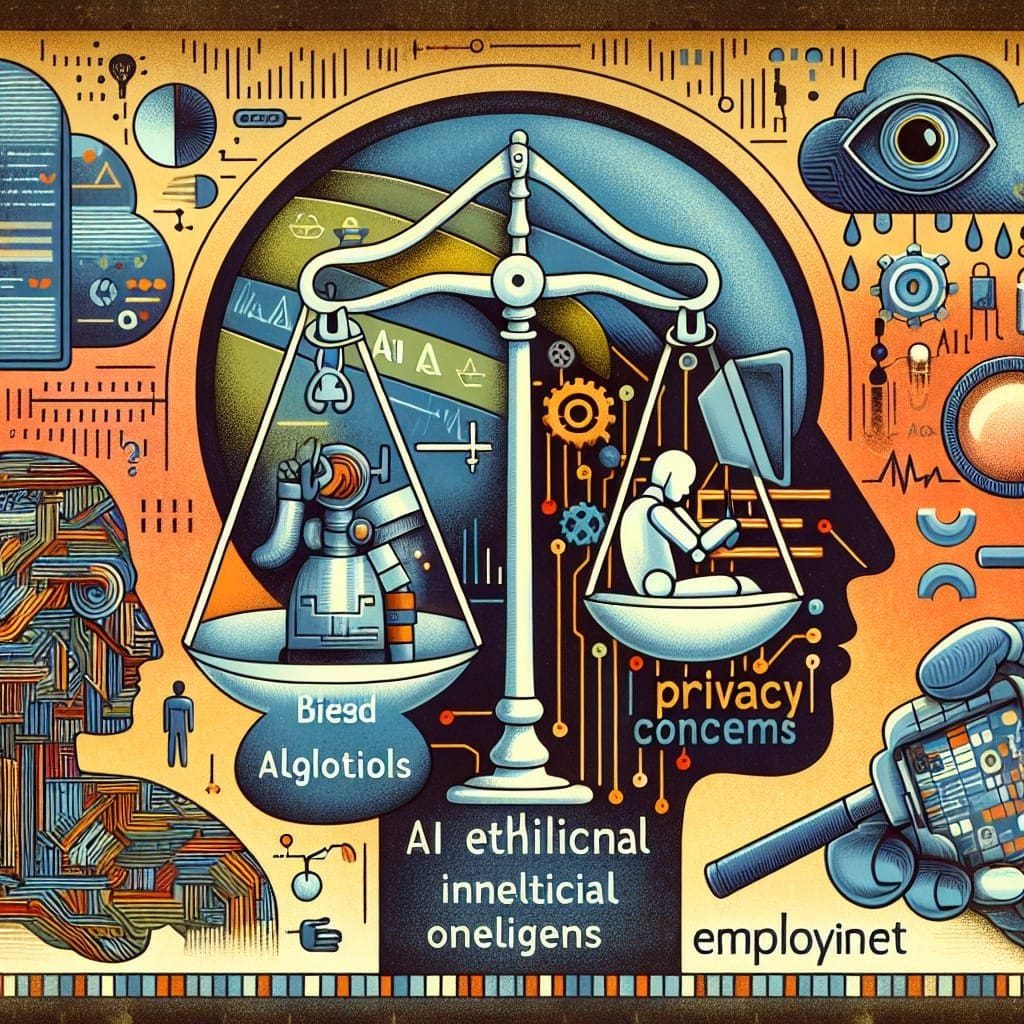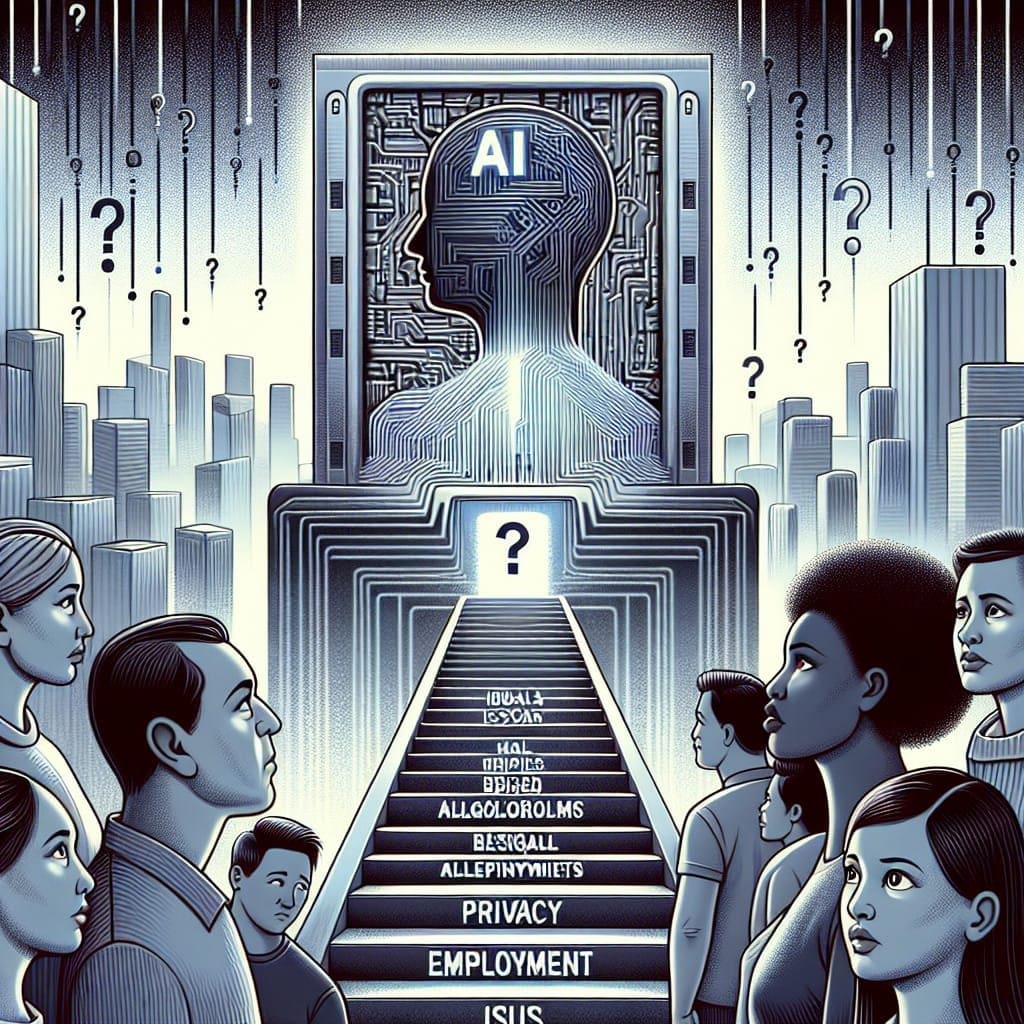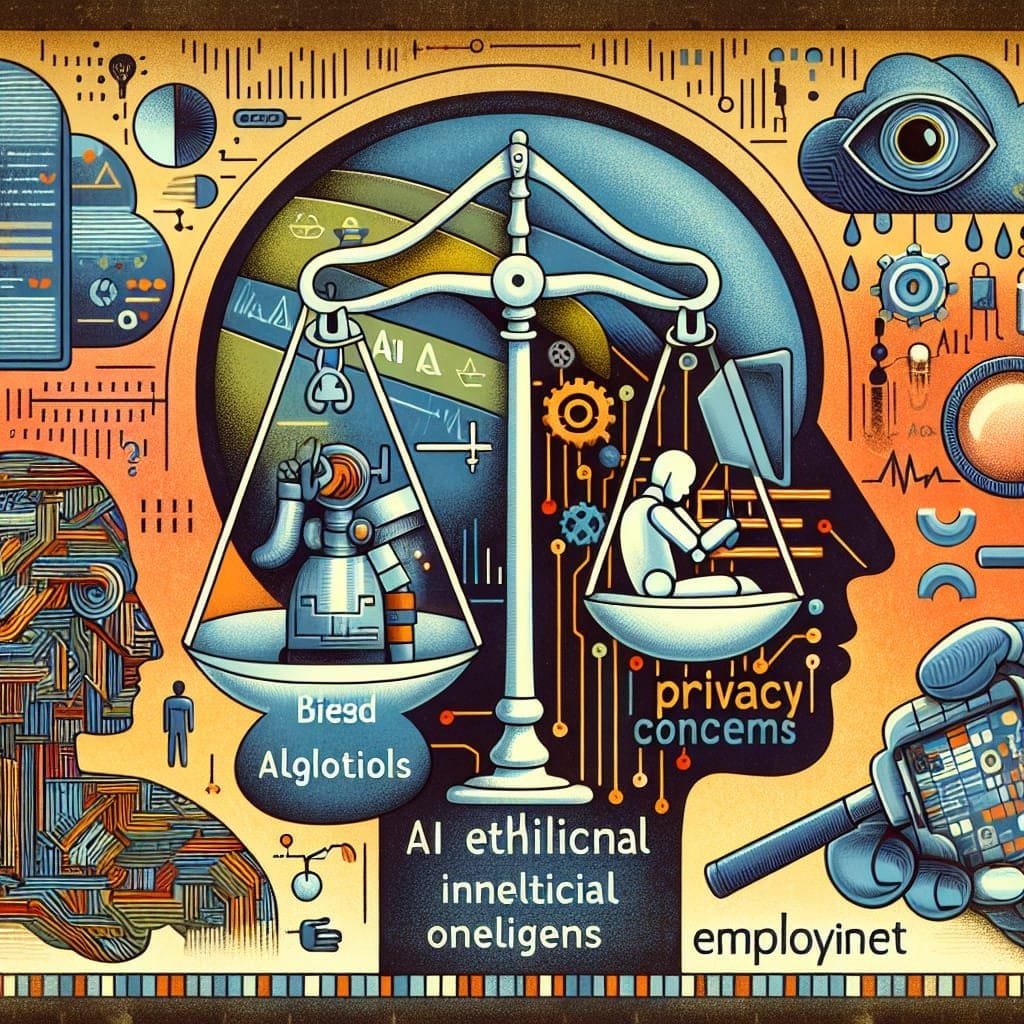Artificial Intelligence has become increasingly prevalent in our society, revolutionizing the way we live and work. However, as its capabilities expand, so do the ethical implications that accompany it. In this article, we will explore the profound impact of artificial intelligence on various aspects of society and delve into the ethical questions raised by its advancements. From concerns about privacy and data security to the potential for job displacement, the ethical implications of AI deserve careful consideration as we navigate this rapidly evolving technological landscape.
The Ethical implications of Artificial Intelligence
/UN_VHSPC6FM” frameborder=”0″ allowfullscreen>
Ethics and Artificial Intelligence
Ethics and Artificial Intelligence (AI) are intertwined in a complex relationship. As AI becomes increasingly prevalent in our daily lives, it raises important ethical questions that need to be addressed. Ethics refers to the moral principles that guide human behavior, and AI involves the development of autonomous systems that can make decisions and perform tasks without direct human intervention. Consequently, it is significant to examine the ethical implications of AI to ensure its responsible and beneficial deployment.
The potential of AI to disrupt human lives
AI has the potential to reshape various aspects of human lives, both positively and negatively. One significant area of concern is job automation. As AI technology advances, it may replace human workers in certain industries, raising questions about unemployment and economic inequality. Moreover, AI has the ability to collect and analyze vast amounts of personal data, raising concerns about individual privacy and the potential for misuse or abuse of sensitive information. Additionally, AI systems may influence or even make decisions that traditionally belong to humans, such as in healthcare or legal contexts. These changes can drastically impact societal dynamics and raise ethical concerns.

Ethical issues in AI development
The development of AI systems brings about a range of ethical considerations. One pressing concern is the presence of biases in AI algorithms. Since AI systems learn from vast amounts of data, they may unknowingly perpetuate biases present in the data, leading to discriminatory outcomes. This can have serious implications in areas like hiring practices, criminal justice, and loan approvals. It is crucial to address these biases to ensure fairness and equal treatment.
Another significant ethical concern is the use of AI-powered surveillance. AI technologies, such as facial recognition, can be utilized for surveillance purposes, potentially infringing upon individuals' privacy rights. The widespread use of such surveillance can create a surveillance state and raise ethical questions about the balance between security and personal freedom.
The military application of AI and the development of autonomous weapons are also areas of ethical concern. The use of AI in warfare brings with it the potential for reduced human control over decision-making, raising questions about accountability and the potential for unintended consequences. Transparent and accountable AI systems are essential to maintain ethical standards in this field.
Data privacy and security also become crucial issues when dealing with AI. The collection and utilization of personal data through AI systems raise concerns about data ownership, consent, and the potential for data breaches. Maintaining adequate privacy standards and ensuring the security of sensitive information is paramount to uphold ethical principles.
Balancing AI advancements with ethical values
While AI advancements offer immense potential for societal progress, it is of utmost importance to balance these advancements with ethical values. The responsible development and deployment of AI require careful consideration of the potential impacts on individuals, communities, and society as a whole. This involves prioritizing ethical guidelines, transparency, and collaboration between developers, policymakers, and the public.
Ethical considerations for AI development include incorporating diverse perspectives in the design process, conducting rigorous risk assessments, and ensuring ongoing monitoring and evaluation of AI systems. It is essential to involve ethicists, social scientists, and other relevant stakeholders in the decision-making process to identify and address potential ethical issues.

Considerations for the ethical development and deployment of AI
In order to ensure the ethical development and deployment of AI, several key considerations must be taken into account. First and foremost, transparency is crucial. AI systems should be designed to be explainable and understandable both to the developers and end-users. This transparency will help build trust, enable accountability, and allow for the identification and mitigation of biases or potential harm.
Additionally, safeguards should be put in place to protect data privacy and security. User consent and control over personal data should be respected, and data breaches should be minimized through robust security measures and legislation.
Education and awareness about AI ethics should be widespread, ensuring that people understand the potential implications of AI and are equipped to make informed decisions. This includes promoting digital literacy and providing resources for individuals to understand the ethical considerations surrounding AI.
Collaboration between various stakeholders is vital to address the ethical challenges posed by AI. Governments, industry leaders, researchers, ethicists, and civil society organizations should work together to develop policies, guidelines, and standards that promote the responsible and ethical development and deployment of AI technology.
In conclusion, the ethical implications of Artificial Intelligence are multifaceted and require careful consideration. Balancing the potential benefits of AI with the ethical considerations it raises is paramount. By prioritizing transparency, data privacy, accountability, and collaboration, we can ensure the responsible development and deployment of AI that aligns with our ethical values. It is essential to seize the opportunities presented by AI while taking proactive steps to address its ethical implications, ultimately fostering a future where AI serves human flourishing and societal well-being.









